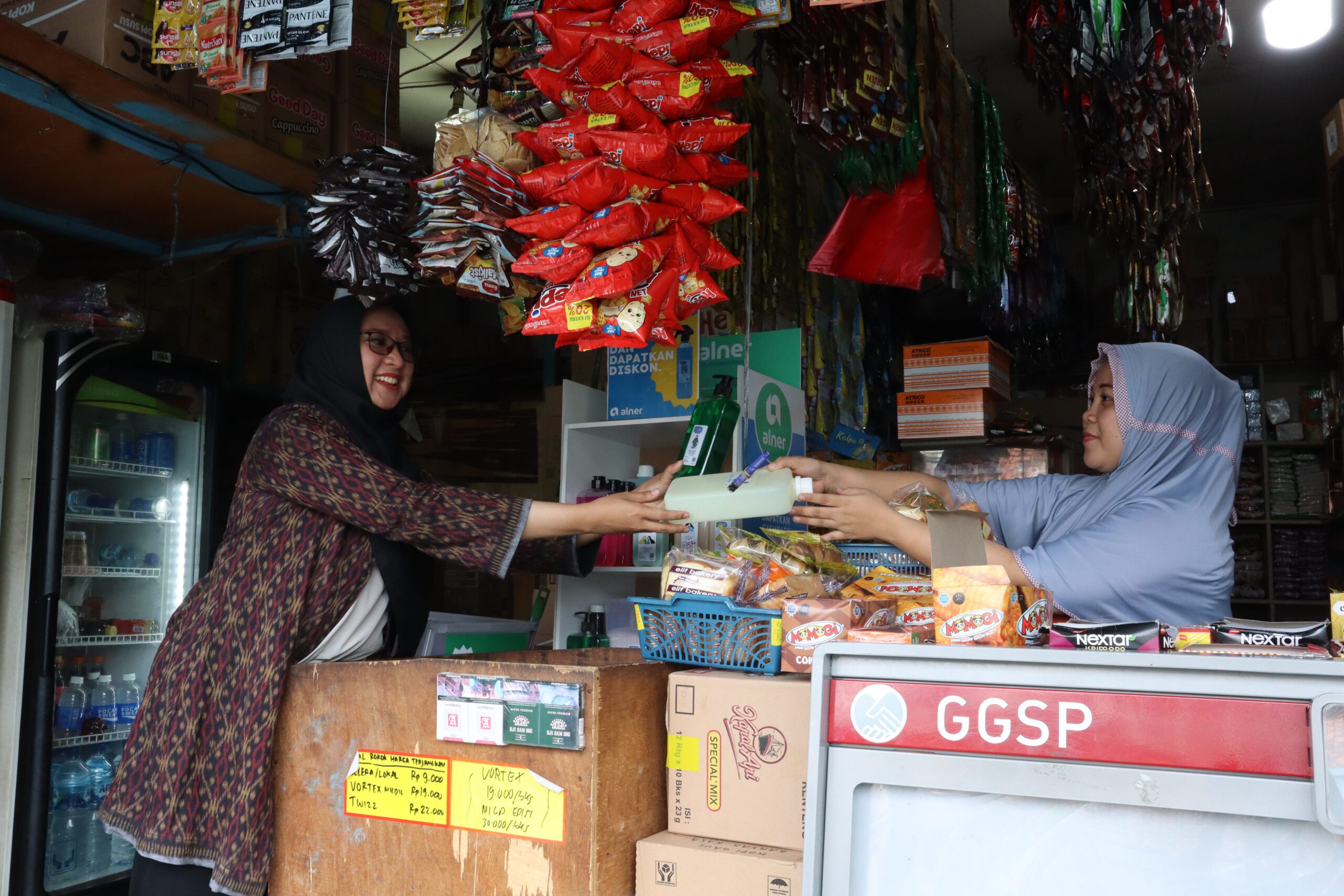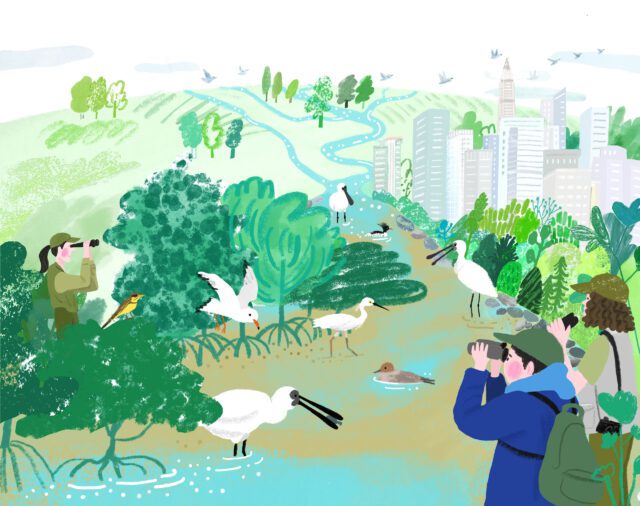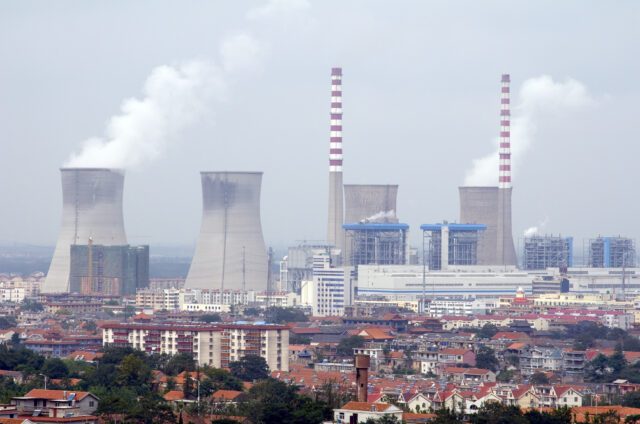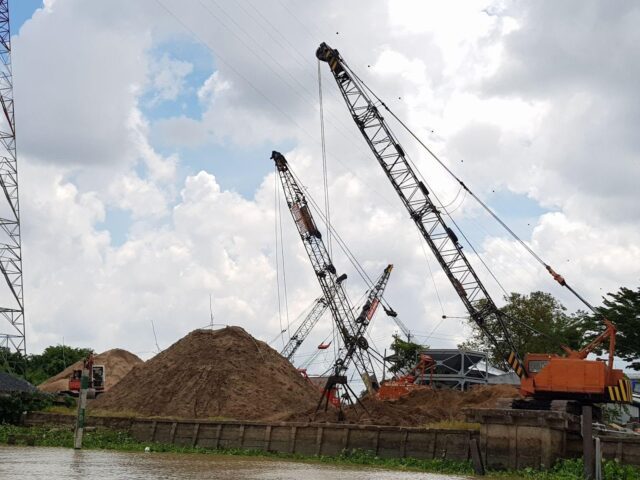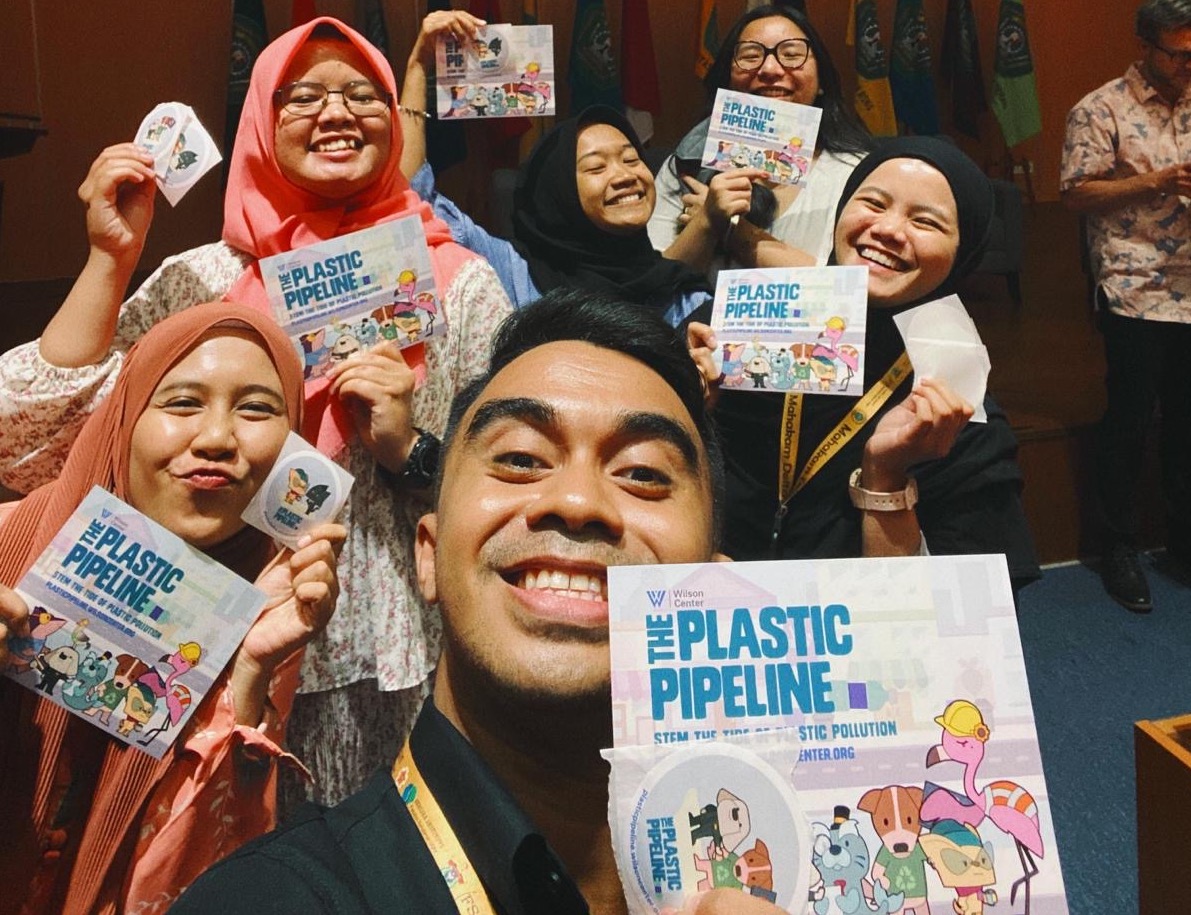-
Scaling up the Reuse Revolution in the Global South
›China Environment Forum // Guest Contributor // Vulnerable Deltas // August 22, 2024 // By Eline Leising & Firda IstaniaIn the last months of 2023, 30 landfills caught fire in Indonesia, highlighting a dangerous health risk and a symptom of the country’s failing waste management system. Most of these landfills are overflowing open dump sites. Moreover, not all waste ends up here, as large amounts — particularly low-value plastics like sachets and pouches — are never collected. Indonesia ranks among the top 10 global plastic polluters. The country generates 7.8 million tons of plastic waste annually, 63% of which is mismanaged. Most of these mismanaged plastics are thrown into rivers, dump sites or burnt by individuals, releasing toxic substances into the air.
-
How China’s most ‘Futuristic’ City Restored its Mangroves
›China Environment Forum // Guest Contributor // Vulnerable Deltas // July 11, 2024 // By Yingxin FengEach spring, as Shenzhen’s mangroves burst into life, the region becomes a prime spot for birdwatchers observing the endangered, black-faced spoonbill. Known as the giant panda of birds, this species winters in Shenzhen Bay from October to April, in preparation for its northbound migration. Shenzhen Bay, located in southern China and part of the Pearl River Delta expanding into Hong Kong, is a crucial stop-off point for migratory birds using the East Asian-Australasian flyway. The mangroves support over 200 species of birds and host 100,000 migratory birds each winter, drawing enthusiasts and scientists alike to witness these natural spectacles against the backdrop of one of China’s most bustling urban settings.
-
Reusable Food Packaging in US and China: Closing the Loop on Plastics in Closed Environments
›During the World Wildlife Fund’s Plastic Policy Summit in March in Washington D.C., I grabbed coffee in a white ceramic mug provided by the convention venue. Reusable mugs seemed unusual amid today’s prevalence of single-use cups, prompting me to reflect on how we have normalized single-use: I bought yogurt and soda in returnable bottles in Beijing; generations before us grew up with reuse. Why did we move away from it?
-
Don’t Panic US: China’s Nuclear Power Ascendancy Has Its Limits
›Like bamboo sprouts after the rain, nuclear reactors are going up quickly across China. There are 36 reactors under development, and Beijing can approve as many as 10 new ones a year. Within a decade, China will likely pass the United States—which has 93 operating commercial nuclear reactors at 54 power plants—as the world’s biggest generator of nuclear power.
-
Shifting Sands: Charting a Course for Sustainable Sand Harvesting in Southeast Asia
›The construction boom across Southeast Asia, driven by burgeoning urban development and infrastructure projects, vividly highlights the dual impacts of progress. For instance, the rapid expansion of road networks, ports, and urban centers, while catalyzing economic growth, has also led to significant environmental and social displacement. These projects rely heavily on sand, a fundamental component of concrete and asphalt, extracted in vast quantities from local riverbeds. Annually, this global demand reaches approximately 50 billion tons, positioning sand as the world’s most consumed resource after water. In the Vietnamese Mekong Delta alone, 50 million cubic meters of sand are extracted annually.
-
The Power of Play with The Plastic Pipeline
›During a visit to Vietnam in November 2023, I cringed as my aunt tossed our now empty bánh mì plastic bag onto the sidewalk. “It doesn’t really matter,” she shrugged, “there aren’t any nearby trash cans anyway.” Finding a trash can wouldn’t have helped much, as two-thirds of Vietnam’s plastic waste ends up burnt, landfilled, or leaked.
-
Green Collaboration: International NGOs and Chinese Partners Promoting Sustainable Overseas Investments
›China Environment Forum // Guest Contributor // Vulnerable Deltas // April 11, 2024 // By Elizabeth Planton, Wendy Leutert & Austin Strange
Around 8.5 million pangolins are estimated to have been trafficked from Africa between 2014 and 2021, with many ending up in China
In March 2019, the World Wide Fund for Nature (WWF) and China’s National Forestry and Grassland Administration co-hosted two workshops on reducing wildlife trafficking in Kenya and Botswana. These workshops, supported by the Chinese embassies in Nairobi and Gaborone, attracted over 200 Chinese nationals working for state-owned or private companies in the two countries. During the workshops, the international nongovernmental organizations (INGOs) and Chinese government officials expressed their shared goal of reducing the illegal trade of products from rare and endangered African species to China, one of the world’s largest markets for trafficked wildlife products.
-
Igniting a Reuse Revolution in China’s War Against Plastic Waste
›
Food takeaway has become a symbol of urban lifestyle convenience in China, but the resulting single-use plastic (SUP) waste has become a costly environmental and economic burden. In 2020, urbanites ordering on food delivery apps generated 37 billion SUP containers and a small fraction was recycled. According to a report by Pacific Environment, 88.5% of SUP waste in China is landfilled, incinerated, or leaked to the environment. Food and beverage packaging is the number one contributor to China’s SUPs.
Showing posts from category Vulnerable Deltas.


